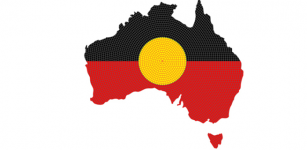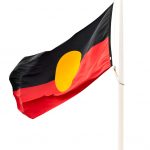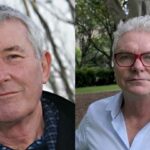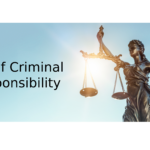Indigenous Nations Are Set to Become Economically Independent

There are over 500 Aboriginal and Torres Strait Islander nations across the continent known as Australia, and its surrounding islands. Since the British have occupied the land mass, the disparity between First Nations people and the newcomers has grown exponentially.
As the system of governance in Australia has continued to discriminate both socially and economically against First peoples, Indigenous nations across the country are now beginning to take back control of their futures.
Take the Sovereign Union movement. Four Aboriginal nations have declared independence from the federal government of Australia. The first was the Murrawarri Republic – situated on the border of NSW and Queensland – back in March 2013.
While currently in far northern Queensland, a number of Indigenous nations are entering into economic treaties with both national and international parties. These will provide their communities with more sustainable economic futures and allow them to exercise their cultural autonomy.
A meeting of nations
On September 27, a two-day treaty forum was held in Townsville. It involved seven Indigenous nations meeting to discuss more effective ways to manage their countries with a focus on the rejuvenation and preservation of land, sea and culture.
Those represented at the meeting were the Aboriginal nations of the Wadja, Yuru,
Kaureag, and Bagaarramuguwarra peoples from northern Queensland, as well as the Torres Strait Islander nations of the Peibre, Komet, and Magaram peoples.
The sovereignty groups invited the independent Treaty Council to attend the event. It’s comprised of Alex and Elizabeth Wymarra, members of the Gudang Yadhaykenu clan, along with a consortium of business consultants, constitutional legal experts and international corporate investors.
The First Nations were keen to enlist the assistance of the Treaty Council as members of the group were instrumental in securing a first of its kind international economic treaty between the Wik nations of far northern Queensland and a Chinese consortium last month.
The Wik agreement
On August 12, the Wik people of Cape York entered into an economic treaty agreement with Legions Wealth: a group of Chinese corporate investors. The $600 million deal aims to provide an economic future for the local people, something successive federal and state governments have failed to do.
Currently, Rio Tinto is clearing forest on the land of the Wik and Wik Way peoples to make way for its $2.5 billion Amrun bauxite mine. The mining giant is currently burning the scarce resource. The deal will see this wood exported to China to make furniture and other products.
The economic treaty has a focus on establishing financial independence for the Indigenous people, as well as environmental sustainability. It includes the construction of a saw mill that will provided employment locally, and a program of replanting trees run by Legions Wealth.
Back in Townsville
Alex Wymarra said that at last week’s meeting discussions were held about establishing “economic treaties with current and/or any future corporations that have interests in the lands and waters of the First Nations people.”
“The Treaty Council has a database of local and international investors,” Wymarra told Sydney Criminal Lawyers®. The council is also working alongside humanitarian organisations. And it’s looking into the eco-friendly concepts of groups like Humanitad and the New Earth Nation.
Sir John Walsh of Brannagh, a constitutional lawyer and sovereignty law expert, introduced the Treaty Council to the eco organisations. Mr Walsh also works with the council.
And like the Wik agreement, the treaties established with the Indigenous nations present at the Townsville meeting will have a focus on economic sustainability. This “includes investing in wealth from their homelands and then using it as an environmentally safe commodity,” Wymarra explained.
Closing the gap
According to the Treaty Council, the seven Indigenous nations at the meeting are experiencing “genocidal poverty created by government policies, which are supported by government agencies and land councils.”
Mr Wymarra said these Aboriginal and Torres Strait Islander communities are so impoverished, as they are “being controlled by government-funded agencies.” He outlined these “agencies use First Nations people as a commodity, known more commonly as ‘the Indigenous industry.’”
These economic agreements will work towards “successfully closing the gap” for these nations, Mr Wymarra continued. Mr Walsh added that it will allow “Indigenous people to choose their own destiny.”
Native title rights
The Torres Strait Islander communities represented at the meeting are from the Murray Islands, which are the home of Eddie Mabo: the Indigenous land rights activist, who instigated the landmark 1992 High Court of Australia case Mabo versus Queensland (No 2).
In the Mabo case, the High Court overturned the legal fiction of terra nullis: the concept that the land had no owners. The court also recognised native title – that Indigenous people have a prior claim to the land – for the first time.
The decision led the Keating government to pass the Native Title Act 1993. But, native title laws have been significantly watered down overtime.
In the 1996 case Wik Peoples versus Queensland, the High Court ruled that a pastoral lease does not confer exclusive rights to the leaseholder. And the granting of the lease does not necessarily extinguish native title rights. Therefore, native title can coexist with the rights of a pastoral lease.
However, the court also found that when there is a conflict of interest, the rights of the pastoral leaseholder prevail and native title rights are extinguished.
Creating brighter pathways
Mr Wymarra pointed out that all of the Indigenous nations involved in last week’s negotiations hold native title rights over their lands. But in terms of self-empowerment and autonomy, these rights have meant little, as these communities still continue to face significant disadvantage.
The aim of the economic treaties is to financially empower these communities without the involvement of government, which in turn will lead to a more autonomous and independent life for future generations.
And as Wymarra puts it, the problems go right back to the time when Captain Cook and others like him turned up to this “Great Southern Land:” a term that was coined long before the invaders arrived.
“Cook deliberately ignored the instructions that the Crown had given him and others, that of making treaties if people were already found to be living here,” Mr Wymarra concluded. “Cook didn’t do that.”







